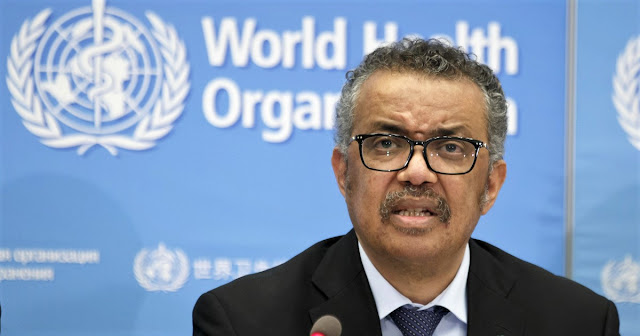Covid-19 pandemic not over yet, WHO warns
The Covid-19 pandemic is “most certainly not over”, Tedros Adhanom Ghebreyesus, the director general of the World Health Organization (WHO) warned on Sunday (May 22) during the opening session of the U.N agency’s annual assembly.
More than 100 world health ministers meet in Geneva this week for the WHO’s first in-person World Health Assembly in three years.
As the delegates meet, COVID-19 infections were still rising and and efforts to vaccinate the world remained incomplete, Tedros told the assembly.
“It’s not over anywhere until it’s over everywhere. Reported cases are increasing in almost 70 countries in all regions – and this in a world in which testing rates have plummeted,” he said.
As the U.N. agency seeks to define its future role in global health policy, the agenda is the most packed in the WHO’s 75-year history and is seen as an historic opportunity to move on from the COVID-19 pandemic, which has led to 15 million deaths, and prepare for the next global outbreak.
The WHO’s Europe region passed a resolution against Russia this month and asked Tedros to prepare a report on Ukraine’s health emergency.
Members are also preparing a resolution to be submitted to the assembly, although diplomats say it will stop short of suspending Russia’s voting rights, as some initially sought.
The WHO’s Ethiopian Director-General Tedros is all but certain to be re-elected via a secret ballot on Tuesday (May 24), having overcome criticism from his own government and a crisis last year following sexual abuse reports against WHO staff in Congo.
The biggest outcome from the assembly itself is expected to be a funding deal seen as necessary to ensure WHO’s survival, with an agreement set to be approved by members which would help cut its reliance on donations with strings attached.
WHO is currently funded mostly by voluntary contributions from governments and private donors, a set-up that the U.N. agency and independent panels of experts have said is unsustainable as the organisation faces new challenges, including higher risks of pandemics as well as other health issues from breastfeeding to Ebola.
A deal that would raise mandatory fees for member states and reduce its reliance on donations – as long as WHO makes much-needed changes to improve efficiency and transparency – is likely to be approved.
(Reuters)









No comments
Thanks for viewing, your comments are appreciated.
Disclaimer: Comments on this blog are NOT posted by Olomoinfo, Readers are SOLELY responsible for their comments.
Need to contact us for gossips, news reports, adverts or anything?
Email us on; olomoinfo@gmail.com